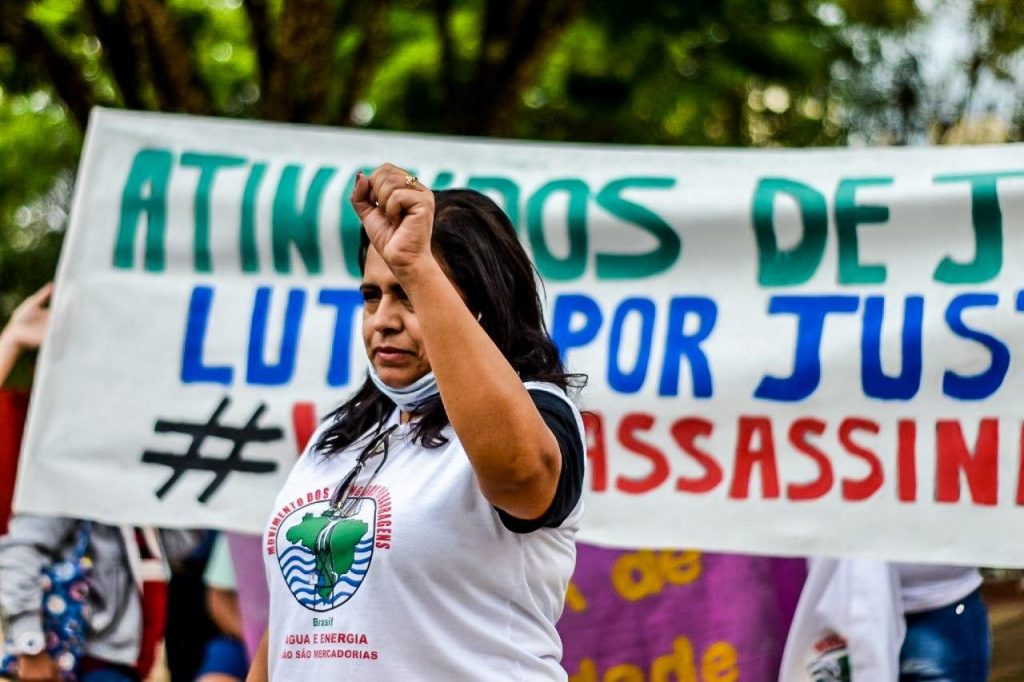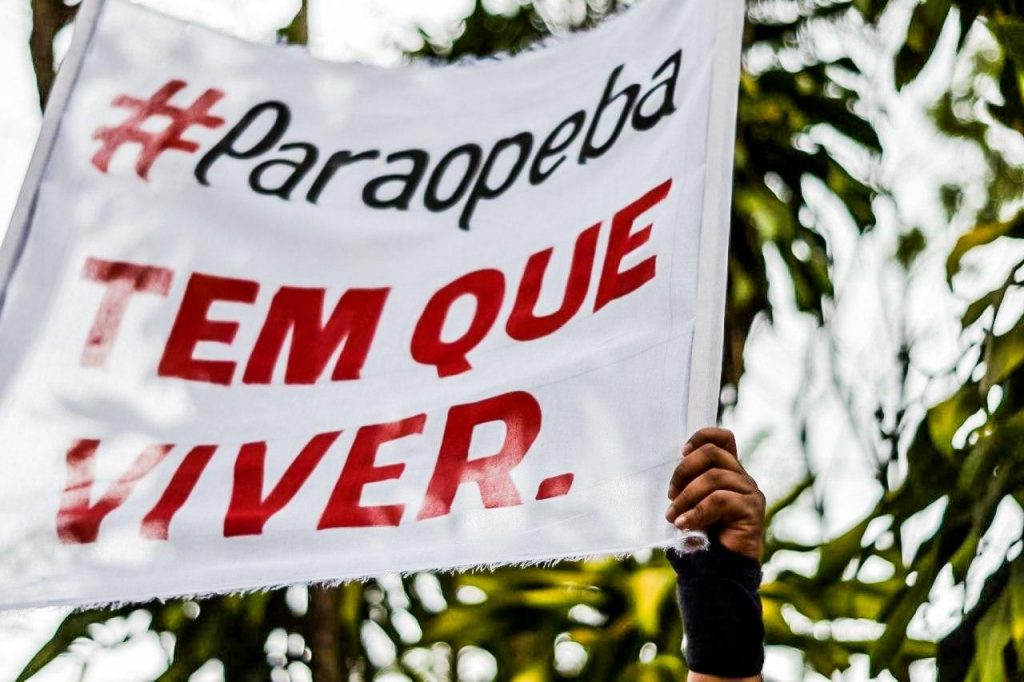After occupying Vale’s entrance in Brumadinho, those affected keep struggling for reparations
This action took place to denounce the exclusion of those affected at the company negotiation meetings with public bodies; after four hours waiting for answers at the company headquarters, Vale refused to listen to the requests made by the population impacted by the crime
Publicado 26/10/2020 - Actualizado 27/10/2025

On the morning of this Friday, October 22th, about 150 people affected by the dam in the Paraopeba river basin occupied the entrance to Vale’s administrative headquarters in Brumadinho city, Minas Gerais state.
People affected by dams from the municipalities of São Joaquim de Bicas, Betim, Mário Camos, Juatuba, and Brumadinho, organized through the MAB looking for a concrete answer regarding the reparations of the crime. They did this before an afternoon meeting held behind closed doors in which company representatives, the Public Defender’s Office, the State’s Public Ministry (MPE, after its acronym in Portuguese), and the state government were present.
Also in attendance: the president of the Court of Justice, the attorney general, the state attorney general, and the general public defender.
The Extraordinary Conciliation Hearing in the 2° Court of Treasury and Autonomous Entities was held without the participation of representatives of the population affected by the rupture of the dam. This rupture caused the residents of the affected areas to revolt. After a struggle at the company entrance, the Federal Public Ministry issued a notice in support of the movement, stating that it hasn’t participated in the negotiation meetings without the presence of technical advisors and those affected.
The next round of negotiations will take place during a meeting on November 17th, now hoping to include the participation of those affected.
The state lawmaker, Beatriz Cerqueira, and federal lawmaker, Rogério Correia, sent a note to the attorney general who is in charge of the case, to urge the MPE to urgently intervene and monitor the negotiations, in line with its constitutional attributions.
According to the Minas Gerais government by way of its press advisor, the proposal constructed with the Public Ministry and Public Defender’s Officer has a total value of R$ 54.6 billion. The Minas Gerais state requires the immediate compensation of R$ 26.6 billion for economic damages, paid through the funding of projects. The other R$ 28 billion refers to compensation for collective moral and social damages.
We know that every time they meet behind closed doors and negotiate among themselves, it is those who have been affected by their projects that end up losing. The last time they did it, the emergency aid was slashed to 50%. We demand that the decisions that affect the lives of thousands of people be taken in the presence of representatives of those affected,” says José Geraldo Martins, of the MAB state coordination.
In addition to dealing with individual compensation and the crime reparation process, the meeting that took place on the Thursday afternoon of October 22 also dealt with the Emergency Aid paid to families affected by the crime.
Urgent solutions
After more than four hours of resistance in the place, even while being subjected to intimidation by the Military Police, those affected ended the occupation, but they remain struggling and resisting in order for justice to be done.

In addition to putting pressure over the amounts allocated for a comprehensive reparation process, which a right for those affected, there were also requests to receive quality drinking water to carry out domestic tasks and other services, as had been agreed upon and promised by Vale after the breaking of the dam. Another appeal was for the company to not cut the emergency aid payments, as it is threatening to do.
The Right to Economic Income program
The MAB proposes that the program proposed by the movement, Programa Direito à Renda, be implemented; it guarantees financial payments for five years made to those affected so that there is stability for the population, in addition to expanding the benefits to more people, thus boosting the local economy.
According to the MAB’s proposal, the program must be controlled by the State, taking the decision-making power regarding payments out of the hands of the mining company, thereby avoiding conflicts already present in the territories.

